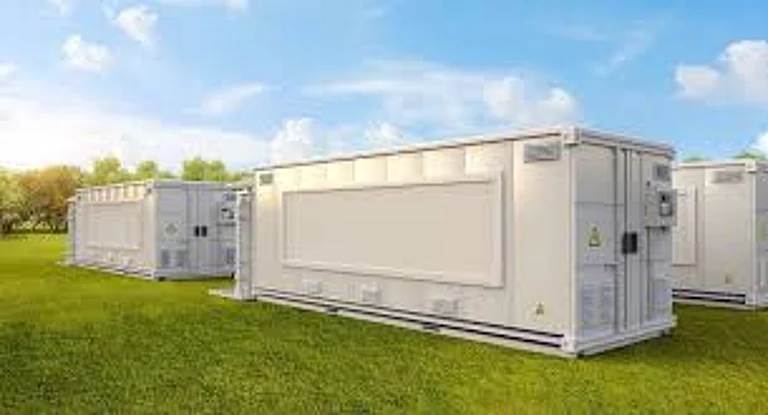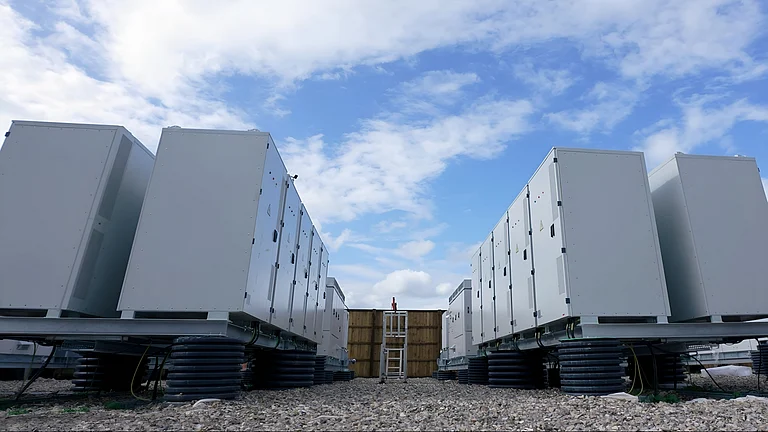
Adani to build India’s largest battery energy storage system in Gujarat.
Project aims for 1,126 MW power capacity and 3,530 MWh energy storage.
Move aligns with India’s push for 24/7 renewable power and grid stability.
The Adani Group plans to enter the Battery Energy Storage Systems (BESS) sector with a project that will be India’s largest and among the world’s biggest single-location BESS installations, the company announced in a release on November 11. The project, coming up at Khavda in Gujarat, is expected to be completed by March 2026.
Commenting on the development, Chairman Gautam Adani said, “Energy storage is the cornerstone of a renewable-powered future. With this historic project, we are not only setting global benchmarks but also reinforcing our commitment to India’s energy independence and sustainability. This initiative will enable us to deliver reliable, clean and affordable energy solutions at scale.”
India’s Renewable Storage Leap
The project will have a power capacity of 1,126MW and an energy capacity of 3,530 megawatt-hours (MWh); enough to supply 1,126MW of power for roughly three hours. Over 700 battery containers will be deployed, making it India’s largest and one of the world’s biggest single-site energy storage systems.
How Energy Gets Stored
The project will use advanced lithium-ion battery technology and integrate smart energy management systems for optimal performance. It will help manage round-the-clock electricity demand, support grid stability during peak hours, shift energy use to different times and cut carbon emissions.
Once operational, the Khavda site will become the world’s largest integrated renewable and storage park, supporting grid stability and 24/7 renewable power.
According to the company, the Adani Group aims to expand its energy storage capacity by an additional 15GWh by March 2027 and reach 50GWh within five years. “This plan shows the Group’s strong commitment to building a modern, clean, and reliable energy system that supports India’s net-zero and climate goals,” the company said in a statement cited by Business Standard.
With its foray into BESS, the Group joins a growing cohort of global energy leaders investing in large-scale storage. Battery energy storage is increasingly critical to modern power systems as grids handle surging inputs from intermittent solar and wind generation.
Renewables Outpace Storage Growth
India has made significant strides in clean-energy capacity additions, installing over 341MWh of battery storage systems in 2024, a sixfold jump from 51MWh in 2023, according to Mercom India Research’s India’s Energy Storage Landscape report.
By December 2024, India’s total BESS capacity stood at around 442MWh. Mercom noted that about 60% of this capacity came from solar systems combined with battery storage, 36% from renewable projects with round-the-clock capabilities, roughly 4% from standalone BESS and just 0.05% from floating solar with storage.
In comparison, the Central Electricity Authority (CEA) projects India’s total energy storage requirement to touch 82.37GWh by 2026–27 (47.65GWh from pumped storage projects and 34.72GWh from BESS). This is expected to surge to 411.4GWh by 2031–32 (175.18GWh from pumped storage and 236.22GWh from BESS).
Despite growth, the storage sector is still at a nascent stage. As of mid-2025, India had about 12,500MW of BESS projects under tender—roughly 42,000MWh of capacity—according to The Economic Times and Energy Watch. Yet data from the India Energy Storage Alliance (IESA) shows that as of April 2025, only around 0.5GWh of BESS capacity had been commissioned.
This slow uptake contrasts sharply with the country’s soaring energy needs. India is the world’s third-largest power consumer, after China and the US, with about 70% of its electricity still generated from coal and another 90GW of coal-based capacity planned by 2032. Strengthening energy-efficiency mandates across sectors such as buildings, appliances and MSMEs will be critical to reducing this dependence.
According to the World Economic Forum, long-duration energy storage could help decarbonise power generation by making renewable energy flexible, schedulable and dispatchable, all capabilities essential to limiting global warming to 1.5 degrees Celsius.


































